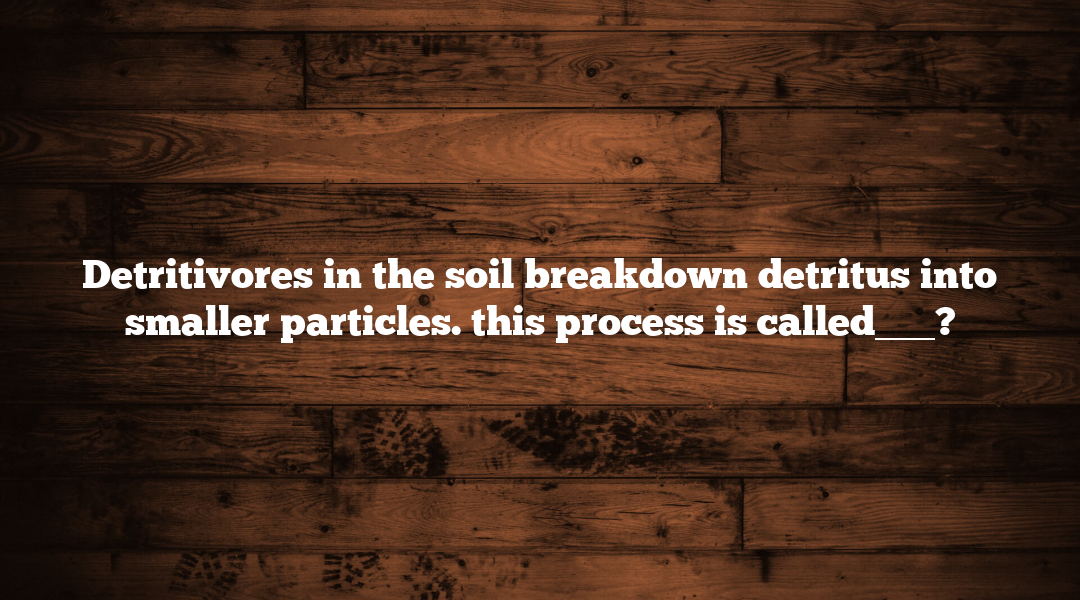Detritivores in the soil breakdown detritus into smaller particles. this process is called___?
In the intricate tapestry of terrestrial ecosystems, detritivores emerge as silent champions, driving the essential process of decomposition in soil environments. Their tireless efforts to break down organic matter into simpler forms fuel the cycle of life, supporting the health and vitality of soil ecosystems.
The Marvel of Detritivores: Nature’s Cleanup Crew
Detritivores, ranging from microscopic bacteria to earthworms and beetles, play a fundamental role in soil ecology. Their mission is clear: to transform organic debris, such as fallen leaves and dead organisms, into nutrients that enrich the soil and sustain life.
Decomposition: Nature’s Recycling Mechanism
At the heart of soil ecology lies the intricate process of decomposition. Detritivores, along with microbial communities, orchestrate this vital recycling mechanism, breaking down complex organic compounds into simpler substances that can be absorbed by plants and other organisms.
The Diversity of Detritivores: A Symphony of Life
Detritivores exhibit remarkable diversity, with each species contributing unique skills to the process of decomposition. From earthworms aerating the soil to fungi breaking down lignin, detritivores collaborate in a harmonious dance that shapes the health and fertility of soil ecosystems.
Detritivores as Soil Engineers
Beyond their role in decomposition, detritivores act as soil engineers, sculpting the physical structure of the soil. Earthworms, for example, create burrows that improve soil aeration and water infiltration, while millipedes and beetles aid in the breakdown of organic matter, promoting nutrient cycling.
The Importance of Detritivores in Nutrient Cycling
Detritivores are the guardians of nutrient cycling in soil ecosystems. By breaking down organic matter, they release essential nutrients like nitrogen, phosphorus, and potassium, which are then recycled back into the soil and made available to plants, fostering a continuous cycle of growth and renewal.
Challenges and Conservation Efforts
Detritivores face numerous challenges, including habitat loss, pollution, and climate change. Human activities disrupt their habitats and threaten their populations, jeopardizing the stability and health of soil ecosystems. Conservation efforts are essential to protect detritivores and preserve the delicate balance of soil ecology.
Educating and Engaging the Community
Raising awareness about the importance of detritivores is key to their conservation. By educating the public about the vital role detritivores play in soil ecosystems and promoting sustainable land management practices, we can inspire collective action to protect these invaluable organisms and the environments they inhabit.
Conclusion: Honoring the Unsung Heroes
In conclusion, detritivores are the unsung heroes of soil ecology, working tirelessly to sustain life beneath our feet. By understanding and appreciating their vital contributions, we can nurture healthy soil ecosystems and ensure the well-being of our planet for generations to come. Let us celebrate the marvels of detritivores and embrace our role as stewards of the Earth.






